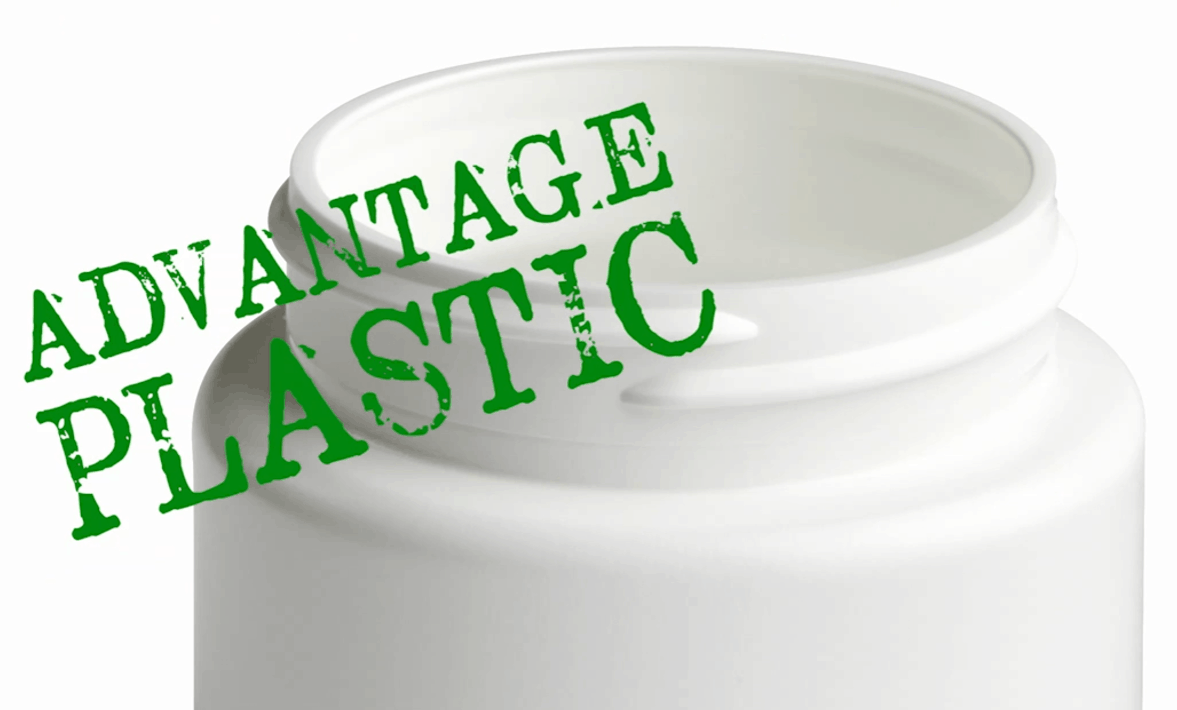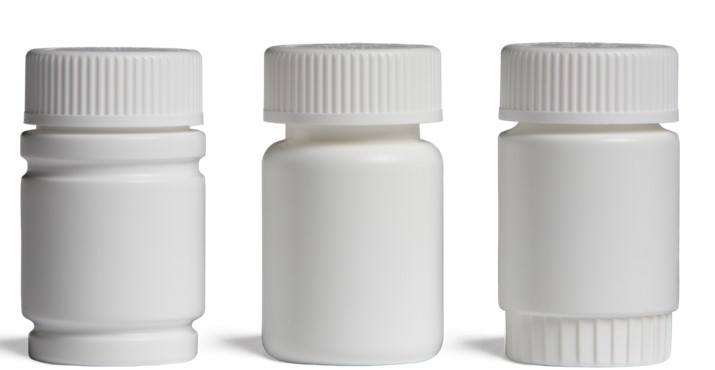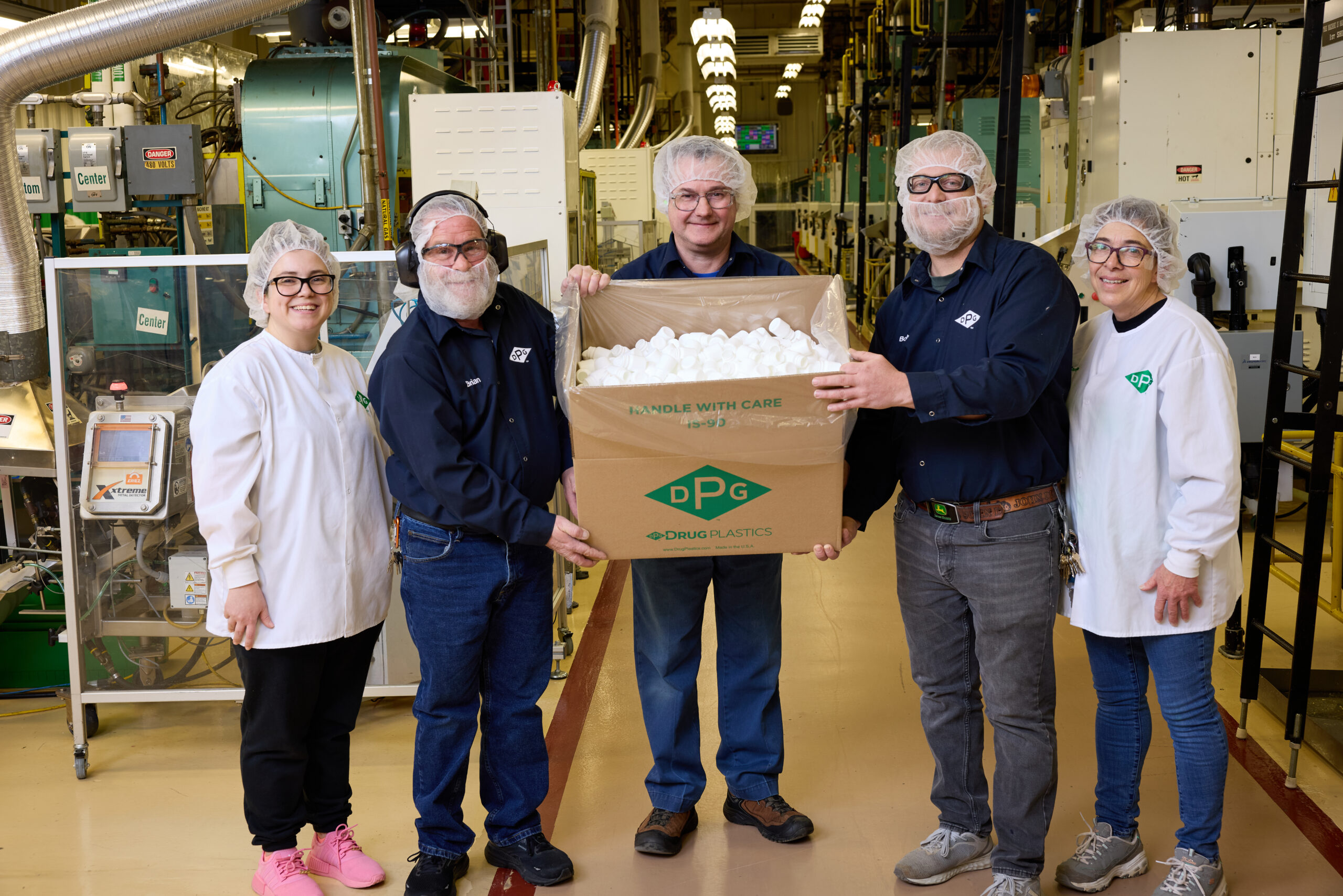The two most common materials used to package medications and supplements are glass and plastic. Both offer their share of advantages; however, plastic has the advantage when cost is an important consideration for your business for a number of significant reasons.
Plastic excels in cost savings compared to glass in three key areas:
- Production costs
- Shipping and handling loss
- Transportation costs
We think it’s important that you know how utilizing plastic can help improve your bottom line. That’s why we want you to have all the information you need to make knowledgeable decisions about product packaging.
Watch the video to learn more about the cost benefits of plastic packaging versus glass. Continue reading for a more in-depth overview of each advantage.

Plastic Reduces Production Costs
Right from the start, glass has a cost disadvantage compared to plastic: glass is more expensive to produce. The manufacturing processes for both plastic and glass packaging are overall quite similar, as both involve heating the material and then using molds to give it its desired shape and thickness. Where glass production differs from plastic is in the amount of energy required to manufacture each bottle.
Depending on its specifications, glass melts at between 1400°C to 1600°C. Meanwhile, plastic melts at a much lower temperature, at around only 170°C. This means plastic requires significantly less energy to shape and manufacture.
Further, advancements in molding technologies continue to lower plastics production costs, as bottles can be shaped using less heat and more quickly, requiring even less energy. Taken as a whole, plastic production is a more efficient process than that of glass.
Working with a reputable plastic manufacturer ensures products are efficiently produced and costs will be reduced. This makes plastic an optimal packaging solution for you and the consumer.
Plastic Reduces Shipping and Handling Loss

Shipping is a complex, time consuming, and often expensive process. There is a lot that occurs throughout the shipping process:
- The empty bottles are shipped to the filling location
- Then the bottles are filled
- After filling they must then be distributed to consumer locations
This multi-stage process leaves a lot of room for potential issues, including product loss. The more often glass bottles must be handled, whether during the shipping or filling process, the higher the potential for damage to occur. Glass can easily shatter. This poses a safety concern, but it also means a cut into your bottom line.
Shaking and bumping are common during the shipping process. This leaves glass vulnerable to chipping, cracking, and shattering. On the other hand, plastic is more durable and resists cracking and breakage.
Plastic Offers Lower Transportation Costs
Glass is comparatively heavier than plastic. Consider the following measurements: glass has a density of approximately 2.6 g/cm3 compared to HDPE plastic, which is around 0.9 g/cm3. This makes glass almost three times heavier than plastic of the same size. In addition, plastic containers can be made thinner than glass bottles, further reducing their weight.
Let’s compare a 2 oz. glass jar and a 2 oz. HDPE plastic jar as an example. We’ll assume that both jars have the same dimensions and a 53mm neck opening. A 2 oz. glass jar with a 53mm neck opening will weigh around 82.2 grams. In comparison, the 2 oz. plastic jar weighs only around 13.0 grams. This means it would take 6.3 plastic jars to equal the weight of a single glass jar. This difference is substantial – especially when ordering pallets of bottles in bulk.
In this example, you can see just how much the weight differential between plastic and glass can impact transportation costs and ultimately your bottom line.
Work with a Knowledgeable Plastic Packaging Partner
The right material will depend on the needs of your organization. Factors often include packaging safety, cost considerations, and the product itself. If managing costs is at the top of your list, then plastics make a compelling case.
At Drug Plastics, we invest in our customers’ success – we understand there is more to a relationship than just the financial transaction of buying packaging. When you work with us, you can rest easy knowing that we can help guide you in making informed packaging decisions. Ready to get started? Call 610-367-5000 and speak with a knowledgeable representative.




